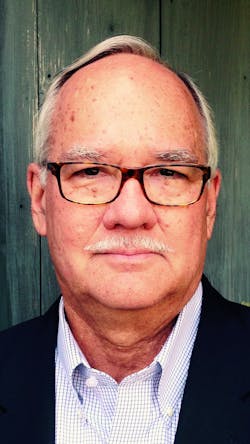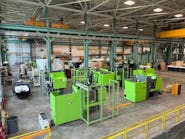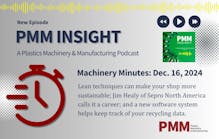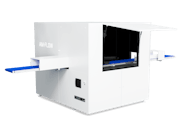Every time I walk through a major trade show such as last month’s K 2019 or the last NPE, I look at all the technology and innovations on display and think that there is absolutely nothing the plastics industry cannot conquer.
I am in awe of the power of the big processing machinery and sophistication of auxiliary equipment, the tiny chips that control everything, robots and other automation to make the factories work efficiently and, of course, the bright minds that design, build and sell the equipment.
This supplement is filled with some of the most interesting new products we found at K 2019. The pages of Plastics Machinery Magazine will be filled with more new equipment over the next three months.
I am not an engineer, but I appreciate the accomplishments of industrial engineers.
However, it takes more than smart engineers for our nation’s manufacturing sector to accomplish great things. In fact, a recent white paper by Mark Howard, U.S. country manager for global automation distributor EU Automation Inc., describes how the federal government turned around the U.S. industrial sector after significant declines in 1980-1985 and 2001-2009. During those periods, the U.S. lost more manufacturing jobs than it lost during the Great Depression. About a third of all manufacturing jobs were lost between 2001 and 2009 alone.
Howard says the job losses came from our country’s annual trade deficit, a reliance on outsourcing and the growth of non-manufacturing industries such as finance, construction, real estate and services. But the biggest factor for the decline in the early part of this century was China’s rise as a manufacturing powerhouse after it entered the World Trade Organization in 2001. MIT economists have directly attributed the loss of 560,000 American manufacturing jobs to China’s rise.
Conditions in the U.S. plastics industry at that time reflected what was happening to the manufacturing industry overall.
Things have turned around. Howard argues that the U.S. manufacturing sector is now positioned for the challenge of advanced manufacturing in the 21st century, and he credits a speech then-president Barack Obama gave in January 2014 about manufacturing innovation. Obama laid out details for a program called the National Network for Manufacturing Innovation (NNMI).
The idea was to network 14 research institutions around the country to work on new manufacturing technologies such as additive manufacturing, robotics, design engineering, smart manufacturing, lightweight and advanced materials and composites, power electronics, photonics, flexible electronics, cell regeneration, clean energy and biopharmaceuticals.
Some of these have connections to the plastics industry. Yaskawa is a member of the Advanced Robotics for Manufacturing collaborative. Carnegie Mellon University also is a member and works with Sepro Group on research.
Ready or not, plastics processors are going to get pulled into the factory of the future at some point. There will be a day when some very smart engineers will have figured out how to mesh the data we are already collecting with artificial intelligence and the Internet of Things to make manufacturing more efficient and more profitable. Some of the credit for that will belong to NNMI participants, such as the Digital Manufacturing and Design Innovation Institute, which operates an Innovations Center near downtown Chicago.
We sometimes admire the way German manufacturers work collectively on improving manufacturing. Recent initiatives — such as the industry’s embrace of Industry 4.0 at K 2016 and the circular economy at K 2019 — are certainly worthy of praise.
But don’t overlook the hard work and successes occurring behind the scenes in the U.S. We don’t publicize our manufacturing development initiatives as well as some other countries, but there is real progress being made.
The NNMI is growing and engaging small and large companies and universities. There are already more than 200 applied research projects under way — projects that speak directly to how manufacturing plants can operate better. It is an important initiative that does not get enough credit.
Ron Shinn | Editor
Editor Ron Shinn is a co-founder of Plastics Machinery & Manufacturing and has been covering the plastics industry for more than 35 years. He leads the editorial team, directs coverage and sets the editorial calendar. He also writes features, including the Talking Points column and On the Factory Floor, and covers recycling and sustainability for PMM and Plastics Recycling.






